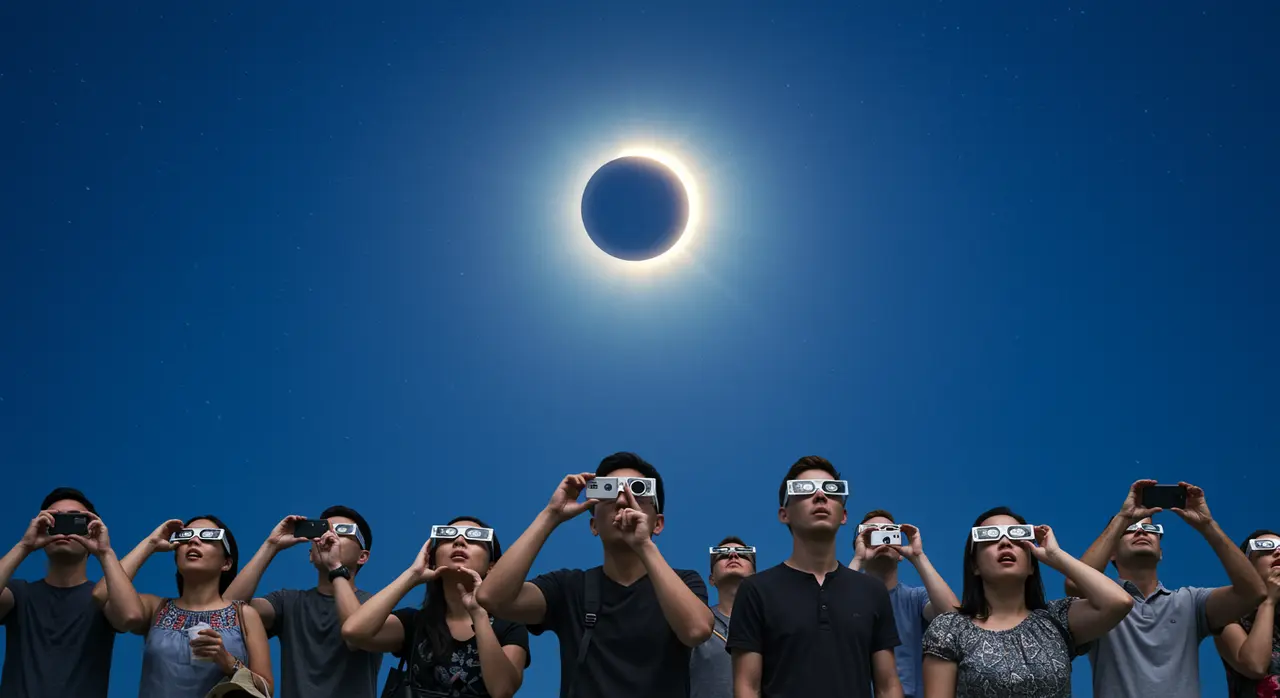Partial Solar Eclipse: Protect Your Eyes or Risk Permanent Vision Damage
43 views
Shadows and Safeguards: The Partial Solar Eclipse and the Perils of Unprotected Eyes
Tomorrow, March 29, the skies over parts of the Northern Hemisphere will play host to a celestial spectacle as a partial solar eclipse graces 13 northeastern U.S. states. For those within its path, the event offers a fleeting chance to witness the moon's dance across the sun—a moment of cosmic choreography that has captivated humanity for centuries. Yet, amid the wonder lies a stark warning: gazing at the sun without proper protection could leave a permanent mark, not on memory, but on vision.
Solar retinopathy, a condition as unforgiving as it is silent, is the primary danger lurking behind the allure of the eclipse. When the unshielded eye meets the sun's intense light, the retina—the delicate tissue at the back of the eye responsible for translating light into vision—can suffer irreversible damage. The symptoms, which often emerge hours or even days after exposure, include blurred vision, blind spots, headaches, distorted perception, and changes in color vision. Unlike the searing pain of a sunburn, the harm to the retina comes without immediate discomfort, making it all the more insidious.

Experts stress that there is no medical treatment to reverse the effects of solar retinopathy. While some individuals may experience partial recovery over six months, severe cases can result in lifelong vision impairment. The condition serves as a sobering reminder of the sun's raw power, even when partially obscured by the moon.
For those eager to witness the eclipse safely, the solution lies in preparation. ISO-certified solar eclipse glasses are a must, offering the only reliable barrier between the eye and the sun's rays. Ordinary sunglasses, no matter how dark, are woefully inadequate for this purpose. Similarly, telescopes, binoculars, or cameras must be equipped with solar filters to prevent damage to both the viewer and the equipment. For those unable to procure these tools, online broadcasts of the event provide a risk-free alternative, allowing enthusiasts to marvel at the celestial event from the comfort of their screens.
The partial solar eclipse serves as a poignant intersection of wonder and caution. On one hand, it invites us to look upward, to marvel at the cosmic forces that govern our existence. On the other, it underscores the fragility of our senses and the importance of safeguarding them. The retina, a tissue no thicker than a sheet of paper, is the very gateway through which we perceive light and color, yet it remains vulnerable to the very phenomenon that makes life on Earth possible.
This duality—of awe and vulnerability—has long defined humanity's relationship with the sun. Ancient cultures revered solar eclipses as divine omens, their rarity amplifying their mystique. Today, we understand the astronomical mechanics behind such events, yet the sense of wonder remains undiminished. The eclipse, fleeting as it is, offers a moment of unity, a shared experience that transcends borders and beliefs. It reminds us of our place in the cosmos, a small yet conscious part of an ever-turning universe.
But with this awareness comes responsibility. The knowledge of solar retinopathy and its dangers is not merely a cautionary tale; it is a call to action. By taking simple yet crucial precautions, viewers can ensure that the memory of the eclipse is one of wonder, not regret. Whether through certified glasses, solar filters, or digital streams, the means to safely enjoy the event are readily accessible. The choice, as always, lies with the individual.
As the clock ticks toward the eclipse, the skies beckon us to pause, to look upward, and to witness a celestial event that is as rare as it is beautiful. But let that pause also serve as a moment of reflection—a chance to honor not only the grandeur of the universe but also the delicate mechanisms that allow us to perceive it. For in protecting our eyes, we protect not just our vision, but our ability to marvel, to wonder, and to see the world anew.